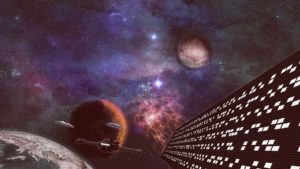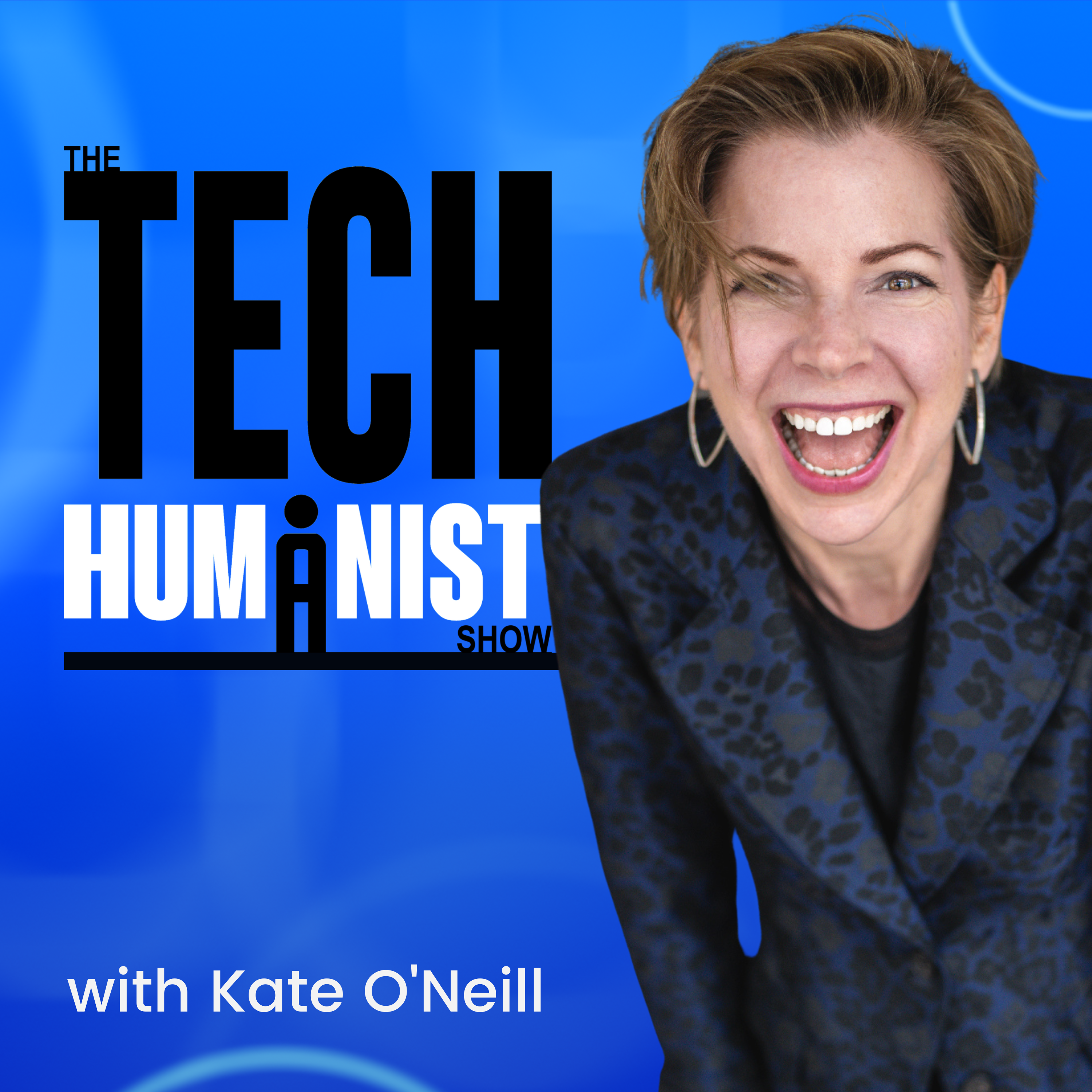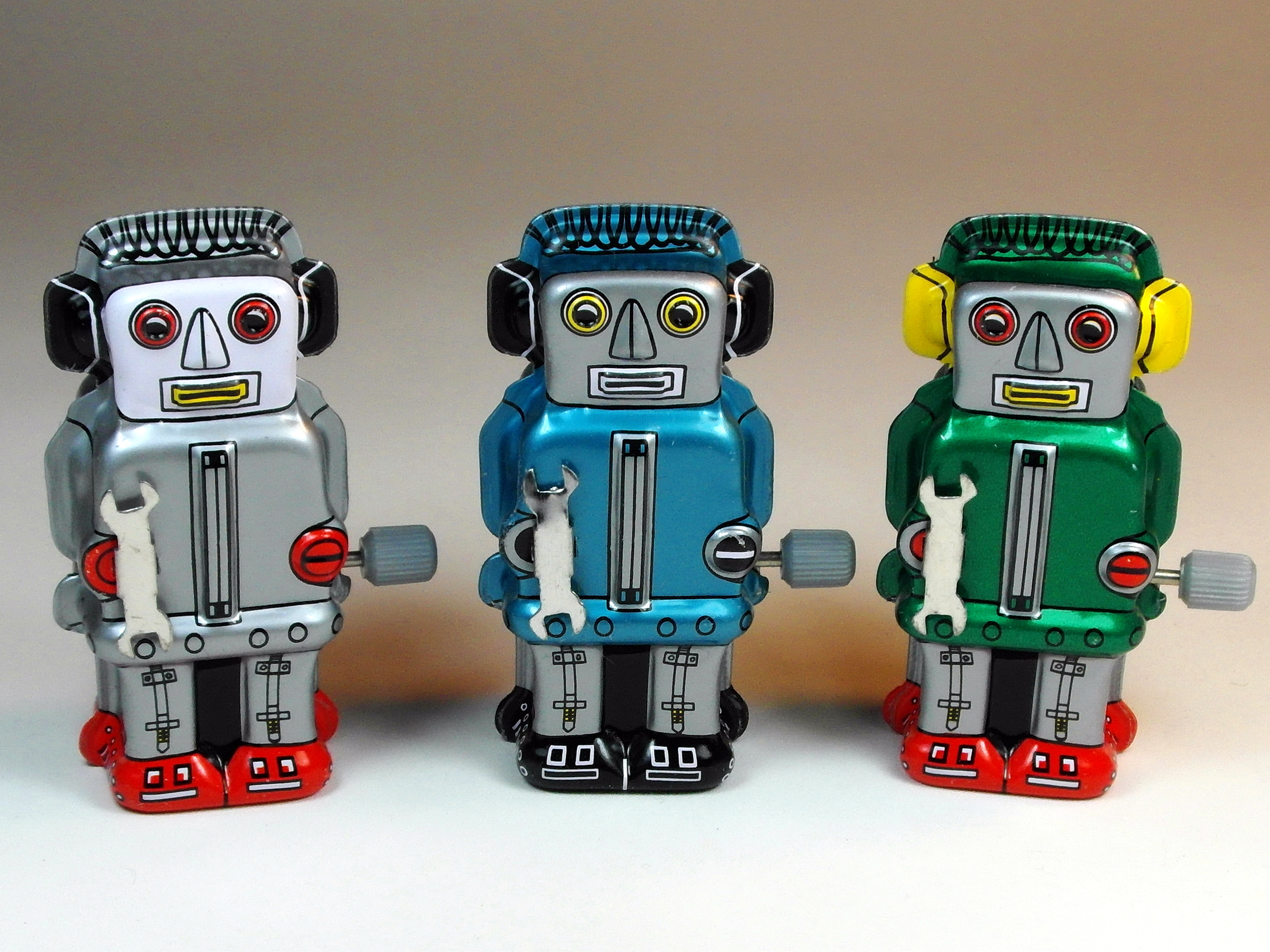The Tech Humanist Manifesto
We need to encode technology with the best of our humanity.
(originally published at Medium)
After twenty-plus years of working in web technology, digital strategy, marketing, and operations, with job titles like “intranet developer,” “content manager,” “head of customer experience,” and even “search monkey,” and after writing a book on the integration of physical and digital experiencesand now working on a book on automation and artificial intelligence, I have a difficult time describing to people what I do. So I’ve decided to declare myself a tech humanist.
I have decided to declare myself a tech humanist.
Because what I’ve realized is that data and technology in all their forms are becoming integrated ever more tightly into our lives and ever more powerful, to the point where the work of making technology successful for human use is inseparable from the work of making the world better for humans. I would even argue that the work of making better technology needs to be in lockstep with the work of being a better human.
And no, I didn’t grow up wanting to be a tech humanist. I mean, it’s not like I read science fiction as a kid and thought someday I would think, write, and speak about the emerging impact of data and technology on human experience.
I was a German major.
I still don’t read science fiction now as an adult, by the way, although I do see the connection between the work that I do and that genre’s exploration of technology and culture.

It’s just that I’ve always preferred stories that explicitly examine human relationships. Because what interests me most is always people: we’re such complicated systems of nerves and emotions and thoughts and impulses.
We’re self-aware animals, pondering our own existence, conscious of our place in the universe. (Not always conscious enough, but still.)
Cosmic primates.
I do think technology is endlessly fascinating. But I’m even more fascinated by humans and our endless complexity and capacity for nuance.
Which means when it comes to any aspect of technology, what I care most about are
the people who make the technology,
the people who use the technology,
the people who benefit from the technology and the people who suffer for the technology,
the people whose lives may somehow be changed by the technology.
What I care most about are the people whose lives may be somehow changed by technology.
And it’s not because we use technology. In other words, it isn’t just the tools.
Ravens use tools. So why am I not, say, a tech ravenist?
Unless we find out about other intelligent species with technology in the universe, humans are the best identifiable link between the dominant technology and the rest of organic life on this planet and beyond.
So our best hope for aligning the needs of all living things and all technological progress is in our own human enlightenment.
Our best hope for integrating the needs of all living things and all technological progress is in our own enlightenment.
We need technological progress. It will surely bring us cures for disease, interplanetary and someday even intergalactic travel, safe and efficient energy, new forms and modes of communication, as well as so much else.
But for our own sake, and for the sake of humans who come after us, we need to wrap that progress around human advancement.
And to do that, we need to foster our own enlightenment. We need a more sophisticated relationship with meaning and with what is truly meaningful, at every level:
in communication,
in pattern recognition,
in our relationships,
in our existence.
To develop technology in harmony with human advancement, we need to challenge our basest instincts and channel our best intentions. We need to genuinely want and be committed to creating the best futures for the most people.
We need to want the best futures for the most people.
Because the fact is we encode our biases into data, into algorithms, into technology as a whole. So as we develop an increasingly machine-driven future, we need to encode machines with the best of who we are. And in that way, infuse the future with our brightest hope, our most egalitarian views, our most evolved understandings.
We need to recognize the humanity in the data we mine for profit, to see that much of the time, analytics are people. That everything we do in the digitally and physically connected worlds creates a data trail. That who we project ourselves to be online — that self, that digital self—is our aspirational self, liking things and connecting with other people and wandering through the digital world in awe, and our aspirational self, our digital self deserves due privacy and protection in every way.
We need to recognize the humanity in the data we mine for profit.
We talk about “digital transformation” in business. But let’s be honest: most corporate environments are anything but transformative. So we need to begin to re-imagine and yes, transform business operations and culture around new models of infrastructure, new understandings of the social contract between employer and employee, and fundamentally new ideas of value.

Because our world is increasingly integrated: online and offline, at work and at play, and we have to be wholly integrated selves, too.
And so we have to ask what the exchange of value means when it’s about an integrated you in an integrated world.
We need to decide, for example, when we talk about autonomous cars: whose autonomy are we talking about? What are the broader implications of gaining freedom while losing control? Evolving from a society of private automobile ownership to privatized fleets of self-driving cars will give us back time, won’t it? Or will it? And yes, it will mean life-changing possibilities for disabled and elderly people. If they can afford it. All in all, as anyone dependent on the New York City subway knows, if our mobility depends on machines we don’t own and don’t directly control, we are making a tradeoff. It may be a worthwhile tradeoff, it may even be an exciting tradeoff, but it is a tradeoff and we should ask meaningful questions about it.
We need to know that living in a culture with an ever-accelerating sense of time might mean having to resist an ever-narrowing horizon. That we have to try not to lose our sense of greater perspective in the FOMO frenzy. That our sense that experiences aren’t real unless we share them and receive a few likes (or preferably a lot of likes) could cost us some peace of mind.
We need to begin to re-imagine our lives around new dimensions of meaningful experience.
And ask ourselves:
What different dynamics come into play when relationships are conducted across physical distances but connected by intimate virtual space, and what can make those relationships more meaningful.
What fosters communities when they’re multi-faceted network nodes, and not found mostly in houses of worship and town squares, and what will make those communities more meaningful.
What “what we do for a living” will mean as jobs shift, as our understanding of contribution changes, and what will make that contribution more meaningful.
Because so much of the way we’ve derived our identity, our sense of accomplishment, achievement, contribution, value, self-worth, is subject to radical overhaul in the next decade and the one following that and beyond. More jobs will be automated, augmented, enhanced, and yes, eliminated. And certainly new jobs will be created, but we can’t wait for them to make sense of this. We have to begin re-imagining now what meaningful contribution looks like in that context.
So we need to ask what it means to be human when the characteristics we think of as uniquely ours can be done by machines. What is the value of humanity?
We need to ask what it means to be human when the characteristics we think of as uniquely ours can be done by machines.
And see, it’s not that I’m a human exceptionalist, exactly. I’ve been vegan for 20 years, after all, which I point out to illustrate that I don’t think rights are something only humans deserve. And eventually if I’m around when machines become sentient, I’ll probably care about AI rights and ethics, too.I can’t help it: I’m a sucker for equality.
So it’s not that I think humans are so special that we deserve protecting and coddling, except that… just maybe we are, and just maybe we do.
I just think that whatever it is — humanity — it’s worth advocating for.
Whatever combination of fascination and flaws it was that produced Shakespeare, Gloria Steinem, Paris, pizza, the Brooklyn Bridge, beer, Nelson Mandela, denim, Mary Tyler Moore, coffee, chocolate chip ice cream…
I could go on and on, but I don’t even know if any of that is really the best of humanity, or even the best of what humanity has achieved. And what lies ahead of us are even greater challenges. So I don’t know what the best of humanity has been and at some level I don’t really care.
I just think we have to be at our best now. And somehow striving for our best, somehow making something lasting, and most of all working to make the best future for the most people — I think that is the best of what humanity can be and has to be.
And we need to start making it our mission to give it, to be it, to encode it, to build it in our culture, in our data models, our work environments, our relationships, and all throughout the technology that is interwoven in our lives. It’s not science fiction; the future really does depend on it.
Thank you for reading. Please feel free to share widely.
Kate O’Neill, founder of KO Insights, is an author, speaker, and consultant focused on the impact of data and technology on meaningful human experiences across all areas of our lives. Her latest book is Pixels and Place: Connecting Human Experience Across Digital and Physical Spaces.


[…] Read The Tech Humanist Manifesto Check out our About page […]